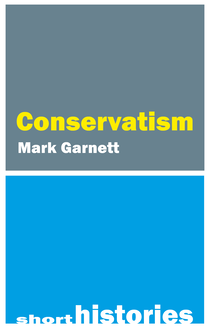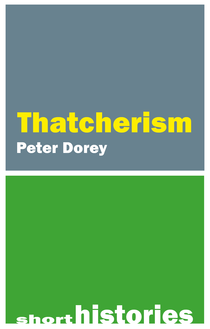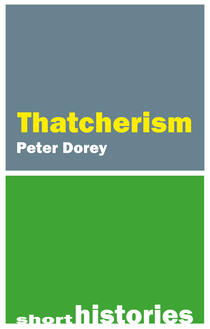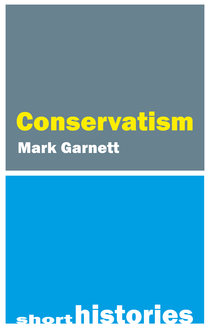-
 Univers
Univers
-
 Ebooks
Ebooks
-
 Livres audio
Livres audio
-
 Presse
Presse
-
 Podcasts
Podcasts
-
 BD
BD
-
 Documents
Documents
-
- Cours
- Révisions
- Ressources pédagogiques
- Sciences de l’éducation
- Manuels scolaires
- Langues
- Travaux de classe
- Annales de BEP
- Etudes supérieures
- Maternelle et primaire
- Fiches de lecture
- Orientation scolaire
- Méthodologie
- Corrigés de devoir
- Annales d’examens et concours
- Annales du bac
- Annales du brevet
- Rapports de stage
La lecture à portée de main
Vous pourrez modifier la taille du texte de cet ouvrage
Découvre YouScribe en t'inscrivant gratuitement
Je m'inscrisDécouvre YouScribe en t'inscrivant gratuitement
Je m'inscrisEn savoir plus
Vous pourrez modifier la taille du texte de cet ouvrage
En savoir plus

Description
Margaret Thatcher, prime minister between 1979 and 1990, was and continues to be a hugely divisive figure in Britain. Her influence on British politics has long outlived her, with the Conservative Party becoming steadily more Thatcherite than it was under her leadership, especially on economic issues. Policies that support privatization, curbs on trade unions and employment rights (to promote further labour market flexibility), reduction in welfare provision, the replacement of collectivism with individualism, and the marketization of public services, including the NHS and education, are all Thatcherism in practice, and still continue today.
Peter Dorey offers a lively analysis of how Thatcherism became an ideology for politics to conjure with, its relationship with its eponymous leader and with the Conservative Party, as well as the long-term implications for the British people. He argues that the radical modernization of Britain that started under Thatcher’s leadership in the 1980s has created the conditions that have led to the polarization of British society today; a process that was profoundly unconservative in its values and approach, destabilizing institutions which Conservatives once deemed sacrosanct, and replacing continuity and solidity with constant change and competition.
1. Why Margaret Thatcher became Conservative Party leader and prime minister
2. The development of Thatcherism: intellectual origins and ideological framework
3. The key policies
4. Thatcher’s management and domination of the parliamentary Conservative Party
5. The Thatcherization of the Conservative Party since 1990
6. The contradictions and consequences of Thatcherism
Concluding comments
Chronology
Sujets
Informations
| Publié par | Agenda Publishing |
| Date de parution | 30 mars 2023 |
| Nombre de lectures | 0 |
| EAN13 | 9781788215503 |
| Langue | English |
Informations légales : prix de location à la page 0,1250€. Cette information est donnée uniquement à titre indicatif conformément à la législation en vigueur.
Extrait
Short Histories
Agenda Short Histories are incisive and provocative introductions to topics, ideas and events for students wanting to know more about how we got where we are today.
Published
Conservatism Mark Garnett
Thatcherism Peter Dorey
© Peter Dorey 2023
This book is copyright under the Berne Convention.
No reproduction without permission.
All rights reserved.
First published in 2023 by Agenda Publishing
Agenda Publishing Limited
PO Box 185
Newcastle upon Tyne
NE20 2DH
www.agendapub.com
ISBN 978-1-78821-547-3 (hardcover)
ISBN 978-1-78821-548-0 (paperback)
British Library Cataloguing-in-Publication Data
A catalogue record for this book is available from the British Library
Typeset by JS Typesetting Ltd, Porthcawl, Mid Glamorgan
Printed and bound in the UK by TJ Books
Contents
Preface
1 Why Margaret Thatcher became Conservative Party leader and prime minister
2 The development of Thatcherism: intellectual origins and ideological framework
3 The key policies
4 Thatcher’s management and domination of the parliamentary Conservative Party
5 The Thatcherization of the Conservative Party since 1990
6 The contradictions and consequences of Thatcherism
Concluding comments
Chronology
References
Index
Preface
Ten years after Margaret Thatcher’s death, and with her free-market or neoliberal philosophy seemingly beset by increasing conflicts and contradictions, and therefore subject to growing criticism, this is a timely opportunity to revisit her eponymous ideology. In this short book, the key concepts, objectives and policies of Thatcherism are examined, in tandem with the intellectual sources, arguments and discourse which shaped and underpinned it. The book also considers how Thatcher and her ideological adherents exercised a dominance in the Conservative Party far greater than their actual numerical strength in the 1980s, and the extent to which Thatcherism subsequently became hegemonic in the Conservative Party, particularly in terms of the continued, indeed, intensified, commitment to free-market economics, low direct taxation, privatization, deregulation, “marketization” of public services, reduced workers’ rights and employment protection to promote labour market flexibility and restore managerial authority in the workplace, and relentless attempts to reduce welfare expenditure and entitlement. So entrenched has economic neoliberalism become in the Conservative Party, that almost any problems in the British economy and society are interpreted as evidence that the Thatcherite revolution is still incomplete.
In an additional chapter, we examine some of the contradictions or unintended consequences of Thatcherism that have become increasingly evident since the 1980s. These include the manner in which the 1986 deregulation of financial services ushered in an era of unprecedented consumer borrowing and spending, which was totally at odds with Thatcher’s own moral strictures about personal frugality, self-restraint and thrift; the new modes and layers of regulatory bureaucracy yielded by privatization and “marketization” of public services like education and healthcare, in spite of Thatcherite denigration of red tape and state interference; the manner in which the transformation of universities into businesses, and students into fee-paying customers, has led to a proliferation of degrees in subjects which the Conservative right view with deep disdain and disapproval, but which universities find profitable because many students (as sovereign consumers) wish to study them; the general weakening of values and virtues which Conservatives have traditionally revered and defended – community, continuity, deference, family life, organic society, reciprocal duties and responsibilities, social harmony and stability – these having been grievously undermined by the Thatcherite veneration of acquisitive individualism, change/modernization, competition, consumerism, the negative impact on families of longer or more unsocial working hours and/or unaffordable housing, and short-termism (in the economic sphere) as companies seek to increase profits or share-holder value as quickly as possible, rather than adopting a longer-term stance. This has greatly increased job insecurity and precarity among the working class and middle class alike, along with a relentless intensification of the labour process and micro-management of workers via target-setting, monitoring and performance measurement.
This book is also timely because of the relatively recent publication or release of archival and other primary sources that offer new insights into the Thatcher premiership. The Thatcher Foundation (TF) itself has proved a veritable goldmine of original material, such as correspondence – often with Thatcher’s own hand-written comments and sometimes acerbic remarks – between key figures (such as Thatcher herself, of course, John Hoskyns, Keith Joseph, Ferdinand Mount, Alfred Sherman, Norman Strauss and Alan Walters), draft policy proposals and speeches, whereas ministerial papers pertaining to the latter part of the Thatcher premiership have only relatively recently been released by the National Archives (NA), although the erstwhile 30-year rule has now become a 20-year rule. This book has also consulted the many autobiographies, diaries and memoirs published in the last ten years by some of Thatcher’s former colleagues, such as Kenneth Clarke, Oliver Letwin, Chris Patten, Malcolm Rifkind, Caroline Slocock and David Waddington.
In writing this book, and making use of these new(er) sources, I have gained fresh insights and a deeper understanding of Thatcherism. I very much hope that readers will benefit similarly.
Pete Dorey
Bath, Somerset
1
Why Margaret Thatcher became Conservative Party leader and prime minister
When Margaret Thatcher became Conservative leader in February 1975, she had not yet fully embraced the principles and policies which were subsequently developed into Thatcherism. However, she instinctively perceived that the path chosen by the postwar Conservative Party had been a mistake, and her experiences as a minister in Edward Heath’s 1970–74 cabinet reinforced her growing conviction – fully shared by Keith Joseph – that the Conservatives needed a change of ideological direction. At this stage, however, her instinctive ideas and philosophy were not fully formed, so that at the time of the Conservative leadership contest, Thatcher had only recently embarked upon her process of political reappraisal and search for a new mode of Conservatism.
It has been widely believed that in the 1975 Conservative leadership contest, many Conservative MPs voted for Thatcher primarily because they were determined to replace Heath, and most of the other leadership contenders were his allies or associates: “Electing Margaret had simply been the most effective way of getting rid of Ted” (Critchley & Halcrow 1998: 60; see also Riddell 1985: 10). However, although she undoubtedly attracted support from many Conservative MPs by virtue of not being Heath, this has been exaggerated as the main motive for voting for her, and therefore underestimated the extent to which Thatcher genuinely appealed to some Conservative MPs in her own right, either due to her apparent personal qualities or/and her nascent right-wing views. After all, if Conservative MPs had merely wanted a new leader whose most important characteristic was that they were “not Heath”, there were others in the second ballot, such as William Whitelaw and James Prior, who were associated with him ideologically, but were potentially more politically attractive. It therefore behoves us to examine more carefully, and with more nuance, how and why Thatcher was elected Conservative leader in early 1975.
Three discrete factors need to be considered: the unavailability of other candidates representing the Conservative right; the manner in which Thatcher was already beginning to develop a distinct ideological stance and policy agenda, even though it did not yet warrant the soubriquet Thatcherism; the extent to which she had impressed some Conservative MPs with her parliamentary performance as a shadow Treasury minister since the previous year’s election defeats.
Thatcher as the “stalking horse” candidate of the Conservative right
In the 1975 Conservative leadership contest, there were few contenders representing the party’s right, not least because Enoch Powell, an ultra-neoliberal (long before the term was used) and anti-European Community (EC), anti-immigration, English nationalist, had defected to the Ulster Unionists in the 1974 general elections, due to fundamental disagreements with key aspects of Conservative policy. This obviously precluded Powell from standing as a candidate in the subsequent Conservative leadership contest, but had he still been eligible, he would almost certainly have been immensely popular with the party’s right, not only because of his staunch economic liberalism, defence of parliamentary sovereignty and eloquence as a public speaker, but because his 1968 (anti-immigration) “rivers of blood” speech had immediately raised both his public profile, and his popularity with sections of England’s working class (not dissimilar to Nigel Farage’s more recent proletarian appeal).
The other potential candidate whose developing neoliberalism might have garnered support from the Conservative right was Keith Joseph, but he declined to offer himself as a candidate following a poorly-received speech in which he had claimed that: “The balance of our population, our human stock is threatened … [because] … a high and rising proportion of children are being born to mothers least fitted to bring children into the world and to bring them up”. He claimed that these overwhelmingly destitute, working-class mothers, often unmarried and still in their late teens, “are producing problem children, the future unmarried mothers, delinquents, denize
-
 Univers
Univers
-
 Ebooks
Ebooks
-
 Livres audio
Livres audio
-
 Presse
Presse
-
 Podcasts
Podcasts
-
 BD
BD
-
 Documents
Documents
-
Jeunesse
-
Littérature
-
Ressources professionnelles
-
Santé et bien-être
-
Savoirs
-
Education
-
Loisirs et hobbies
-
Art, musique et cinéma
-
Actualité et débat de société
-
Jeunesse
-
Littérature
-
Ressources professionnelles
-
Santé et bien-être
-
Savoirs
-
Education
-
Loisirs et hobbies
-
Art, musique et cinéma
-
Actualité et débat de société
-
Actualités
-
Lifestyle
-
Presse jeunesse
-
Presse professionnelle
-
Pratique
-
Presse sportive
-
Presse internationale
-
Culture & Médias
-
Action et Aventures
-
Science-fiction et Fantasy
-
Société
-
Jeunesse
-
Littérature
-
Ressources professionnelles
-
Santé et bien-être
-
Savoirs
-
Education
-
Loisirs et hobbies
-
Art, musique et cinéma
-
Actualité et débat de société
- Cours
- Révisions
- Ressources pédagogiques
- Sciences de l’éducation
- Manuels scolaires
- Langues
- Travaux de classe
- Annales de BEP
- Etudes supérieures
- Maternelle et primaire
- Fiches de lecture
- Orientation scolaire
- Méthodologie
- Corrigés de devoir
- Annales d’examens et concours
- Annales du bac
- Annales du brevet
- Rapports de stage









